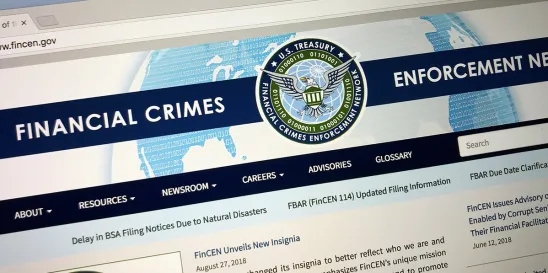The Corporate Transparency Act (“CTA”) disclosure requirements are set to go into effect on January 1, 2024.
The Corporate Transparency Act (“CTA”) is a law that was passed in 2021 by the United States Congress which adds a new requirement to the process of forming an LLC or corporation. Beginning January 1, 2024, most small, privately-held LLCs and corporations will be required to make a filing with the Financial Crimes Enforcement Network (FinCEN) within 30 days of filing a formation document with that corporation’s state agency (such as a Certificate of Formation) in order to be fully registered as an LLC or corporation under the law.
The CTA also requires that the same types of companies (small, privately-held LLCs and corporations) that are already in existence (meaning those that formed prior to January 1, 2024) must make similar filings sometime in the year 2024. The FinCEN website will be live beginning January 1, 2024. Existing LLCs and other companies that fall under this law are required to make their filing on the FinCEN website by December 31, 2024.
What are you required to disclose?
The CTA requires “Reporting Companies,” to disclose basic identification information about the company. For example, (1) the full legal name of the Reporting Company; (2) any trade name or “doing business as” name of the Reporting Company; (3) the complete current street address of the Reporting Company’s principal place of business; and (4) The Internal Revenue Service (IRS) Taxpayer Identification Number (TIN).
The CTA also requires “Reporting Companies” to disclose basic information about the people who own it and the people who formed it. For example, individual’s (1) legal name, (2) date of birth, (3) residential street address (in the case of the people who own the company, for those who formed the company but are not otherwise affiliated, such as attorneys and paralegals, only the individual’s business address is required), and (4) government-issued identification documents such as passport or driver’s license information.
How do I know if I’m required to file?
All “Reporting Companies” under the Act must file. Reporting Companies are generally small, privately-held corporations, limited liability companies (“LLCs”), partnerships, and certain trusts.
Any corporation, LLC, or entity that was created by the filing of a document with a secretary of state or any similar office under the law of a State of the United States or Indian tribe is a “Domestic Reporting Company.” Similarly, any corporation, LLC, or other entity formed under the law of a foreign country and registered to do business in any State of the United States or tribal jurisdiction by the filing of a document with a secretary of state or any similar office under the law of a State or Indian tribe is a “Foreign Reporting Company.” Both Domestic and Foreign Reporting Companies must make filings.
Exemptions: Exempt entities do not have to file. The CTA provides twenty-three exemptions from the definition of a “Reporting Company.” Exempt entities include all publicly-traded companies and heavily regulated entities such as public utilities and financial services companies that are already subject to significant state or federal regulation.
Insurance companies, tax-exempt entities (such as public health and education entities), accounting firms, and large operating companies (those with 20 or more full time employees and $5 million or more in gross receipts or sales reported on an IRS form in the previous year) are exempt. As well, most entities registered with the Securities and Exchange Commission, pooled investment vehicles, and entities registered under the Commodities Exchange Act are exempt.
Subsidiaries of certain exempt entities are exempt from filing as well, such as those of large operating companies. However, not every subsidiary of an exempt entity is exempt from filing.
Banks, government authorities, money services businesses, venture capital fund advisers, and inactive entities are all exempt as well. An entity is considered “inactive” when it was (1) in existence on or before January 1, 2020, (2) is not engaged in active business, (3) is not owned by a foreign person ( 4) has not had a change of ownership in the last year ( 5) has not sent or received funds greater than $1,000 in the last year, and (6) does not hold any assets. See 31 C.F.R. § 1010.380(c)(2) for a full list of exemptions.
When am I required to file?
The FinCEN website will be live beginning January 1, 2024. Existing LLCs and other companies that fall under this law are required to make their filing on the FinCEN website by December 31, 2024.
The same types of companies and LLCs will be required to make similar filings with FinCEN at the time of formation. These companies are required to make their filing with FinCEN within 30 days of filing a formation document with that corporation’s state agency (such as a Certificate of Formation).
There is a proposed rule that may allow companies formed in 2024 to file within 90 days of filing a formation document. If this rule is adopted, companies formed in 2025 and afterwards will still be required to file within 30 days of formation.









 />i
/>i

